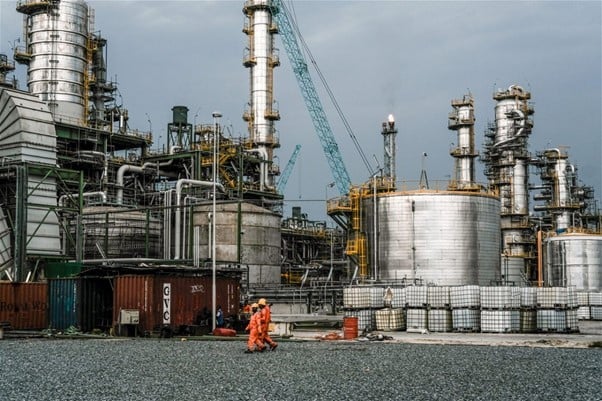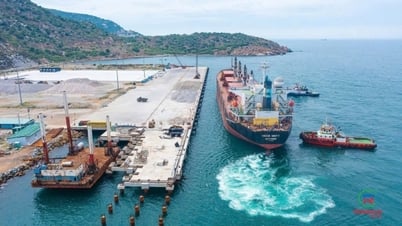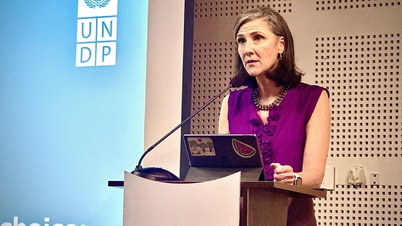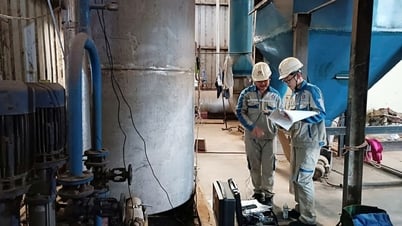 |
| Nigeria is expected to raise oil production to 2.1 million barrels per day by the end of next year, after oil companies operating in the country pledged to invest $13.5 billion in the short term. (Source: Bloomberg) |
The North Africa Post quoted Olu Verheijen, special energy adviser to Nigerian President Bola Tinubu, as saying that she has been working with the Nigerian Upstream Petroleum Regulatory Commission (NUPRC) and recently held meetings in Lagos and Abuja with representatives of 15 prominent oil and gas companies operating in Nigeria, including ExxonMobil, Chevron, TotalEnergies, Shell, NAOC...
The purpose of the meeting is to secure commitment to invest in Nigeria's oil and gas.
“We are facing a revenue crisis that affects all Nigerians. To urgently address this, President Bola Tinubu is actively seeking to increase revenue and foreign exchange to stabilize the economy and currency,” with the oil and gas sector remaining vital despite current production levels being significantly below potential.
One of the main objectives of the discussions with the 15 major oil and gas companies is said to be to push forward the Presidential Initiative focused on addressing the national revenue crisis, while also playing a stabilizing role in the Nigerian economy.
According to the Office of the Special Adviser on Energy, these discussions have revealed significant investment prospects, with a total investment expected to be $55.2 billion by 2030, of which $13.5 billion is expected to be invested by these companies within 12 months from now.
Nigeria is Africa's largest oil producer, but its output is declining due to large-scale crude theft, attacks on pipelines in the Niger Delta region and a lack of investment, causing a drop in government revenue and a large fiscal deficit.
Nigeria's oil output reached 1.41 million barrels per day in August, up 8% from July, data from the petroleum regulator showed.
The implementation of short-term investment projects is expected to pave the way for the delivery of 2.1 million barrels per day of production by December 2024, “unless unforeseen challenges arise”.
Source


![[Photo] Prime Minister Pham Minh Chinh receives Swedish Minister of International Development Cooperation and Foreign Trade](https://vphoto.vietnam.vn/thumb/1200x675/vietnam/resource/IMAGE/2025/5/12/ae50d0bb57584fd1bbe1cd77d9ad6d97)






























![[Photo] Prime Minister Pham Minh Chinh works with the Standing Committee of Thai Binh Provincial Party Committee](https://vphoto.vietnam.vn/thumb/1200x675/vietnam/resource/IMAGE/2025/5/12/f514ab990c544e05a446f77bba59c7d1)



































































Comment (0)